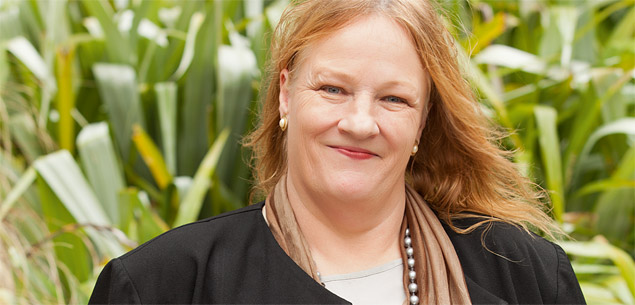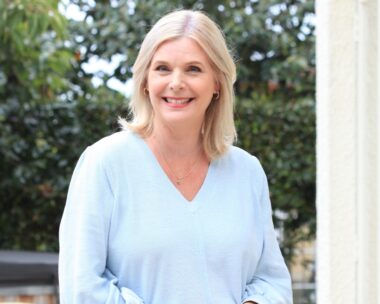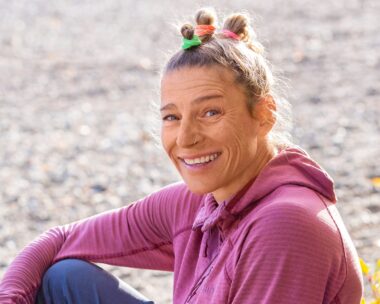Born three months prematurely, Margaret Boyd became a worldwide sensation as she fought for life with just a hot-water bottle to keep her warm. In 1957 there were no heated incubators, steroids or artificial breathing equipment to keep her and her twin sister, Catherine, alive.
But incredibly, the twin girls did survive, with the help of tube feeding and the dedicated care of the Karitane neonatal nurses in Wellington.
They slept in canvas bassinets lined with muslin and cotton wool. And the girls’ father drove to their nursery every day with expressed breast milk from his wife, who remained at home with their four other children.
Speaking for the first time in decades about her amazing survival, Margaret Boyd wanted to share her story with New Zealand Woman’s Weekly for World Prematurity Awareness Day on November 17.

Despite their premature arrival, the twins have been relatively free of serious health problems.
Margaret (now 55) weighed just 740g (1lb 6oz) and her sister, who weighed 900g (1lb 9oz), made headlines worldwide and attracted the attention of royalty because they were two of the youngest premature babies to ever survive.
They were treated to two royal visits from the late Queen Mother, who was patron of Plunket at the time. She first met the Kiwi miracles during her visit here in 1958 and specifically requested to see the girls once more when she returned eight years later.
Margaret can distinctly recall having to learn to do a deep curtsey while bowing her head. “We had to put on a white glove to shake her hand, because she was royalty and it was the thing to do.”
In the end, Margaret was too shy to shake the Queen Mother’s hand, although her sister, who now lives in Australia, did. “I remember when we went on board the [royal yacht] Britannia that I spilt my orange juice,” she recalls, laughing.
“When we met the Queen Mother for the second time, she invited us to Buckingham Palace in England for as long as she or her daughter was alive. “I’d still love to go. It would be quite nice if I could hop off there with my sister, who I haven’t seen for 25 years.”
Margaret believes she wouldn’t be here today if it wasn’t for the Karitane nurses who organised round-the-clock care for her and her sister. They spent nine months at Karitane, and for every birthday afterwards the matron and the sister came to see the girls at their home in Lower Hutt, until the nurses died when the girls were teenagers.

Plunket’s patron, the Queen Mother, was a fan and visited the girls twice.
“I remember the nurses telling me they were told not to take too much care of us because they would be laying us out in a couple of days,” says Margaret.
Her twin sister, Catherine, went on to have four children, and Margaret has two. Her son was eight weeks premature, but weighed 2.3kg (5lbs). Her niece gave birth a year ago to a premature baby who weighed 900g (1lb 9oz), and who, like Margaret, fought for life.
Margaret herself needed a hip replacement at the age of 36 because she had developed the bone-thinning disease osteoporosis, which is linked to her prematurity, but apart from that she’s not had other health problems.
“We’ve managed to come through it all and it’s probably a credit to my mother and my family that I’m here today.”
Baby’s big battle
If Noel Beech-Pooley had been born in the 1950s, he wouldn’t be alive today. Born at the same gestation and the same weight as Margaret, Noel required extensive medical intervention – treatment that wasn’t available in 1957.
Noel was born at 25 weeks, after his mother developed serious pre-eclampsia (high blood pressure), and needed an emergency Caesarean. He weighed just 787g (1lb 7oz). But with his prematurity, Noel has needed more than tube feeding and a hot-water bottle to survive for the past three months.
He’s now the equivalent of 39 weeks gestation but requires help to breathe because of his chronic lung disease. “He’s been quite sick. The first couple of weeks were touch and go,” says his mum, Sarah.
These days most 26-week-old babies have a chance at life, but not all survive. Margaret and Noel were introduced to each other at the Wellington Hospital Neonatal Unit for the Weekly’s story to raise
awareness about World Prematurity Awareness Day on November 17.
And Margaret extended the hand of friendship to Noel’s parents Sarah and Roger, from Otaki, offering to babysit Noel once he is discharged from hospital – but that may still be several weeks away. He will be transferred to Palmerston North Hospital before being allowed home.
It’s been a hard few months for the first-time parents, but Sarah is looking forward to getting Noel to herself. “We can’t wait to be a family in our own home.”

Noel and mum Sarah were thrilled to meet inspirational fellow battler Margaret.




